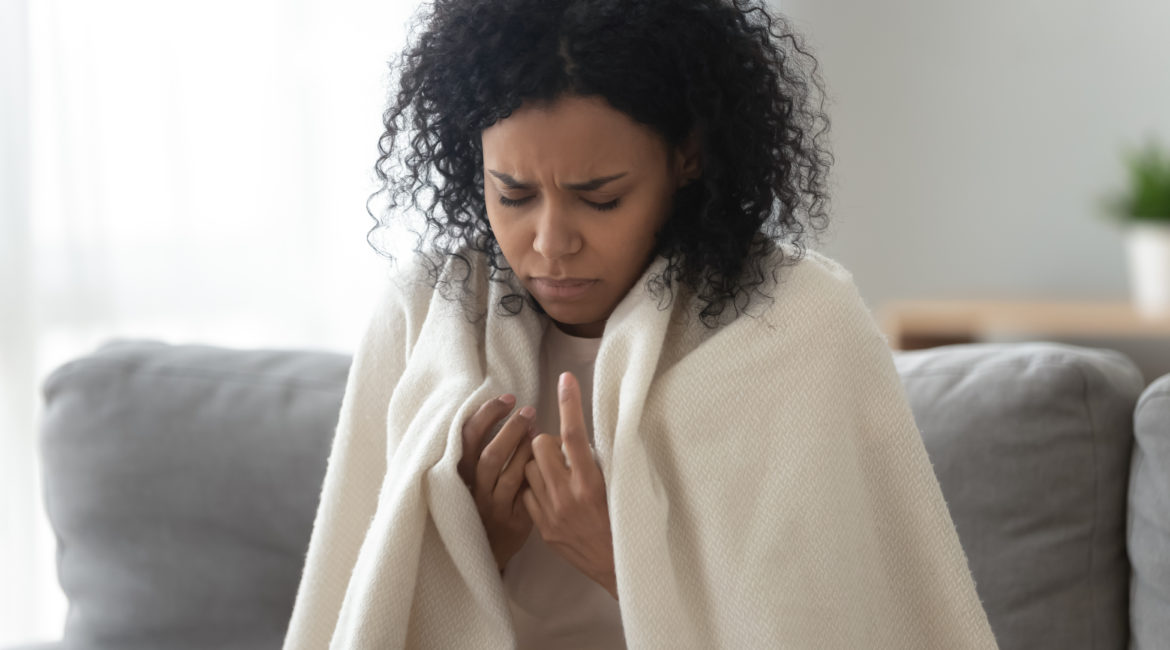The holiday season is invariably one infused with joy, from baking and gift-giving to finally traveling to see your loved ones who now live several hours away.
One of the only things liable to dampen that joy, however, is pain.
And particularly as the temperature continues to drop, it’s easy to wonder: Is the cold making my fibroid pain even worse this year?
Parsing Through the Cause(s) of Pain
Before we throw weather into the mix of women’s health, let’s start by focusing on general fibroid-related pain.
Generally, fibroids are known for inducing pain as they grow and begin to encroach upon nearby organs, ultimately generating pelvic pressure and pain. Depending on where they are positioned, fibroids may also grow to press against the spinal column, thereby causing or exacerbating lower back and/or leg pain.
Finally, fibroids may worsen a woman’s experience of menstruation.
“Uterine fibroids may put pressure against the uterine lining, which can cause more bleeding than usual,” as explained by Everyday Health. “The uterus may not contract properly, which means it can’t stop the bleeding. Fibroids may stimulate the growth of blood vessels, which contributes to heavier or irregular periods and spotting between periods.”
Discomfort, Cold, and Correlation
While cold weather sensitivity may not necessarily cause an increase in fibroid-related pain, research indicates the inverse may be true, particularly when it involves the aforementioned menstrual pain.
Specifically, a study conducted in 2015 found that “severe menstrual pain and mixed menstrual pain were positively associated with heightened cold pain sensitivity.”
In other words, women who experience exacerbated menstrual pain as a result of their fibroids may gradually become more sensitive to lower temperatures, thereby creating a loop of menstrual pain and cold pain that is interrelated.
Solutions No Matter the Season
If you are living at the mercy of uterine fibroids, it’s important to recognize that you are capable of fighting back with uterine fibroid embolization (UFE).
UFE is a minimally-invasive and FDA-approved means of shrinking fibroids, thereby lessening — if not altogether eliminating — your symptoms.
Moreover, based on the recorded evidence, “the American College of Obstetricians and Gynecologists has recognized UFE to be a level A treatment category,” Endovascular Today confirms. “Specifically, the College states: ‘Based on long- and short-term outcomes, uterine artery embolization is a safe and effective option for appropriately selected women who wish to retain their uteri.’”
So, are you ready to learn more? Then it’s time to reach out to Duval Fibroid Center! Not only do we provide personalized one-on-one care and education, but we are able to comfortably perform UFE in our state-of-the-art outpatient clinic.
To find out more or schedule your appointment, contact us today by calling 904-423-6017!





